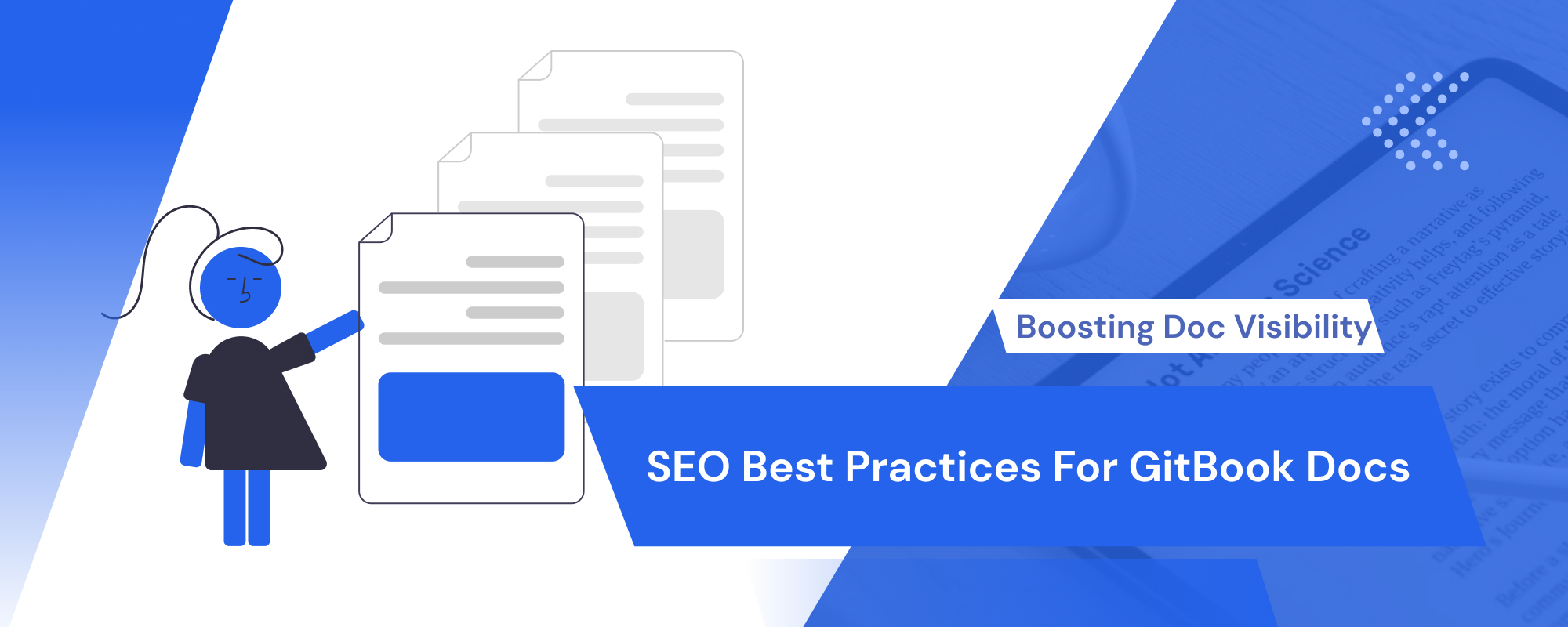If you are into B2B or B2C SAAS, chances are you know about GitBook—it’s a go-to for handling documentation. We figured we knew our way around GitBook pretty well, but we hit a snag when our knowledge base had an issue: the site map was missing.
Not having a sitemap can mean less people see our knowledge base. In this read, I’ll show you how to avoid making such SEO mistakes in your documentation.
In case you are new to GitBook, here is what it is:
GitBook is a knowledge management tool that allows users to write and collaborate on documentation using a version control system, similar to Git.
The version control system of GitBook enables multiple collaborators to work on documentation simultaneously while keeping track of changes.
Table of Content
SEO Practices for GitBook Docs
Sitemap Generation in GitBook
How to Find your Knowledge Base/ Space on GitBook has a Sitemap or Not?
Fixing Sitemap Not Found Error in GitBook Docs
Types of Visibility of GitBook Spaces
TL;DR
FAQs
SEO Practices for GitBook Docs
GitBook is highly optimized for SEO in terms of design, page speed, sitemap generation, Open Graph, CDN, and more. On the user side, we don’t need to do any SEO optimization to these factors.
All you need to do is give page description and title, which then can be used for meta description and Open Graph purposes.
However, sometimes, our manual errors could lead to no generation of sitemap like in our case. In that case, you will need a little manual intervention to sort out the sitemap generation.
Sitemap Generation in GitBook
GitBook by default automatically creates a sitemap once you publish your space on the web. However, it all depends on the visibility of your space.
How to Find your Knowledge Base/ Space on GitBook has a Sitemap or Not?
To find your GitBook knowledge base—aka space—has a sitemap or not, append “sitemap.xml” at the end of your space URL as suggested in GitBook SEO suggestion.
For example, your space URL is: https://docs.example.com, try adding “sitemap.xml” at the end of the URL like this:
https://docs.example.com/sitemap.xml and hit Enter.
If your space has sitemap, you will get to see something like the below screenshot:
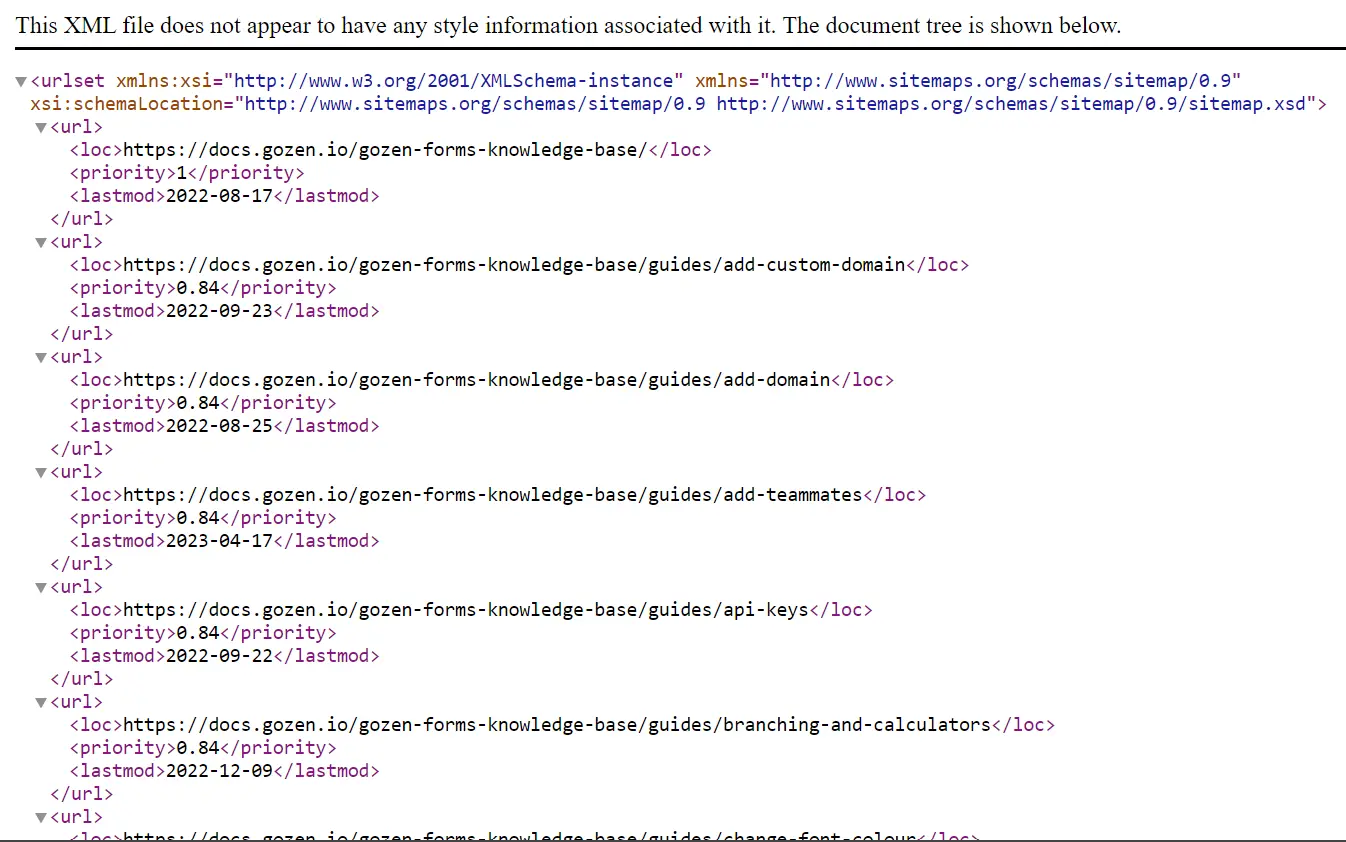
If not you will get a “Page not found” error.
Fixing Sitemap Not Found Error in GitBook Docs
As mentioned above, the visibility of your space decides the sitemap auto-generation. To fix the sitemap not found issue, change your space’s visibility from “Unlisted” to “Publish to the web”.
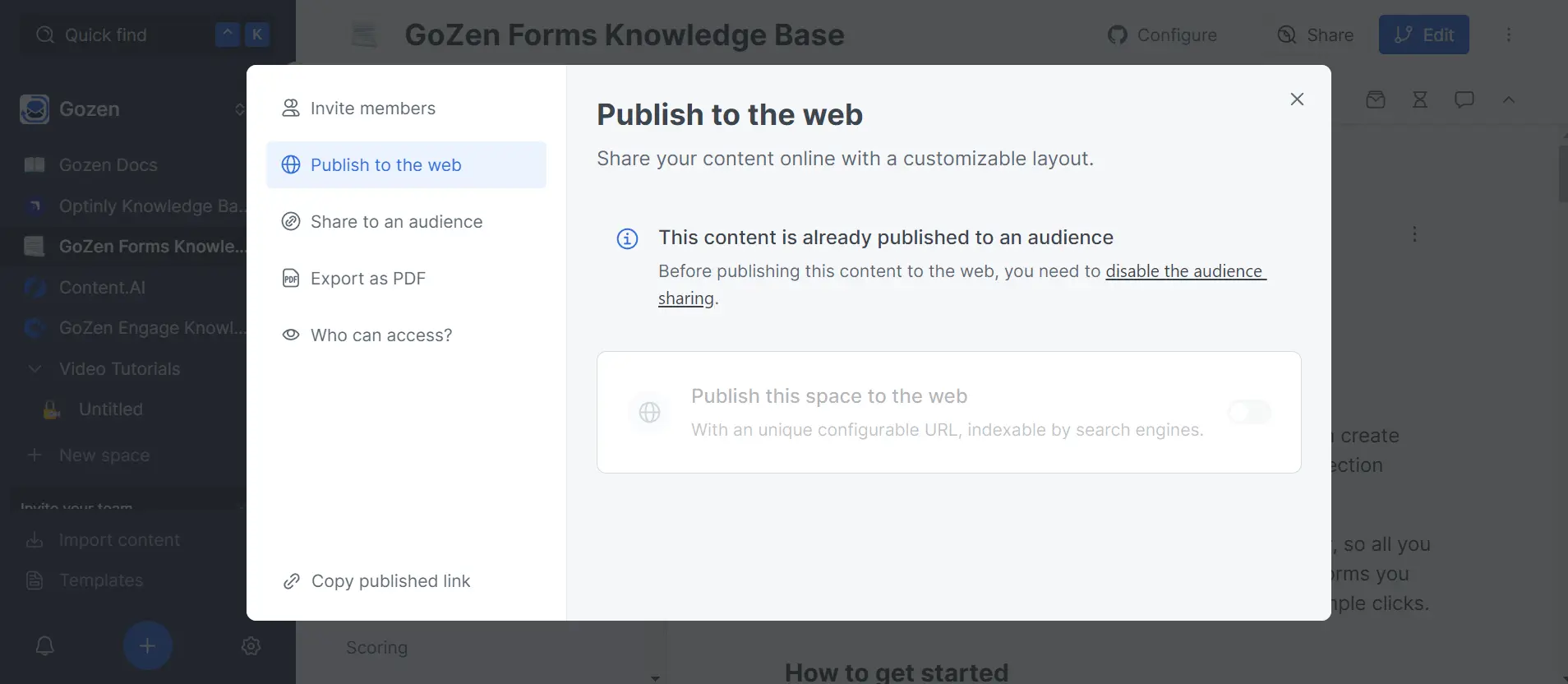
This sitemap optimization and submission will help you overcome the delay in Google crawl and indexing your knowledge base. Once you have made your space “Publish to the web”, GitBook will automatically generate a sitemap for that.
Now, you have to go to your Google Search Console to submit the sitemap for indexing manually to speed up the indexing process. On your left side menu panel, click “Sitemaps” under the “Indexing” section.
Then, paste the path accordingly as shown in the screenshot below and click “Submit”.
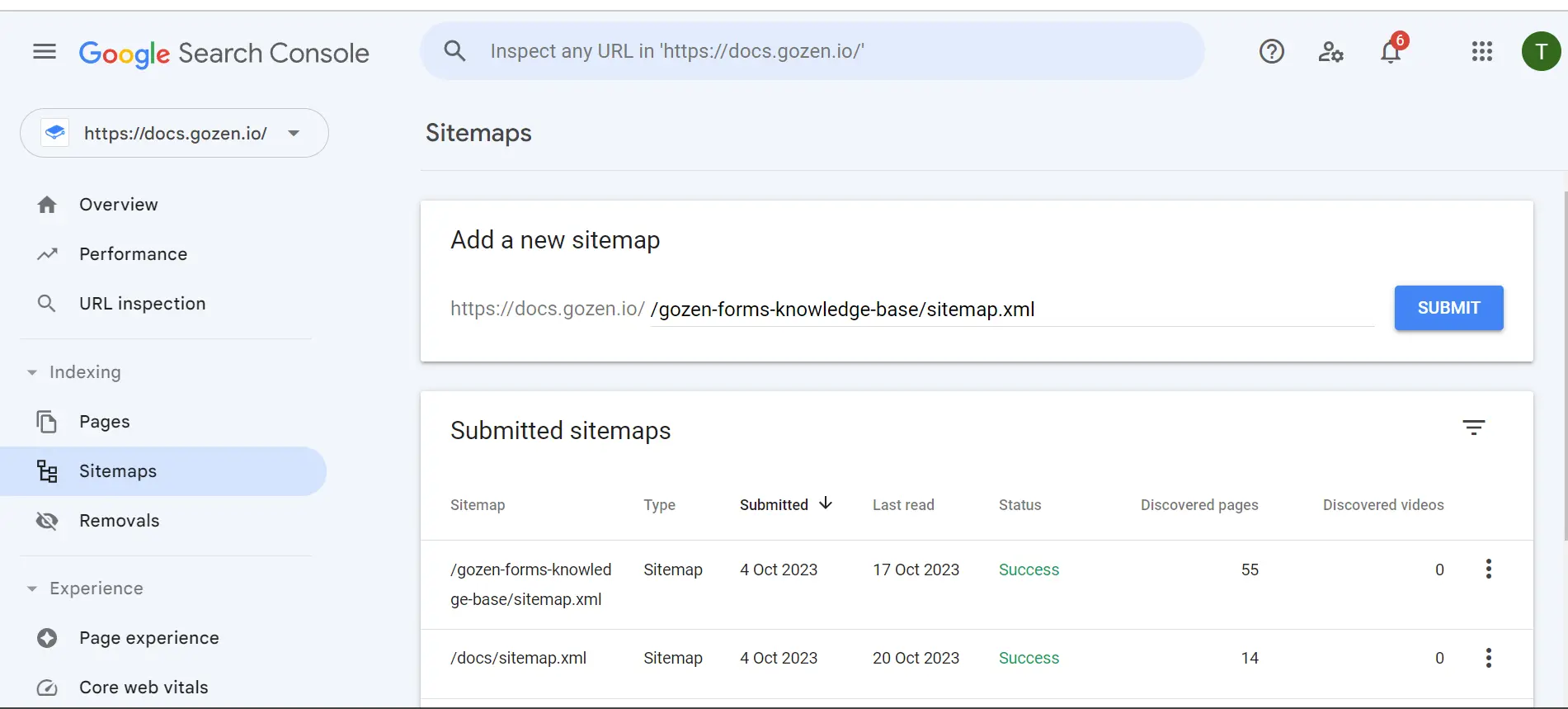
That’s it. You have successfully submitted your GitBook docs sitemap for indexing. Within a week or so, you will see your documentation will rank on Google.
Types of Visibility of GitBook Spaces
GitBook offers a range of publishing options ranging from private to public. Each has its few subcategories.
It is essential to understand these visibilities to avoid SEO mistakes.
Invite members: Inviting members is an option that allows you to connect with specific members and collaborate with them. You can invite members via either email or invite links. Importantly, you can allocate access to every member here like who can be an administrator, creator, reviewer, editor, commenter, reader.
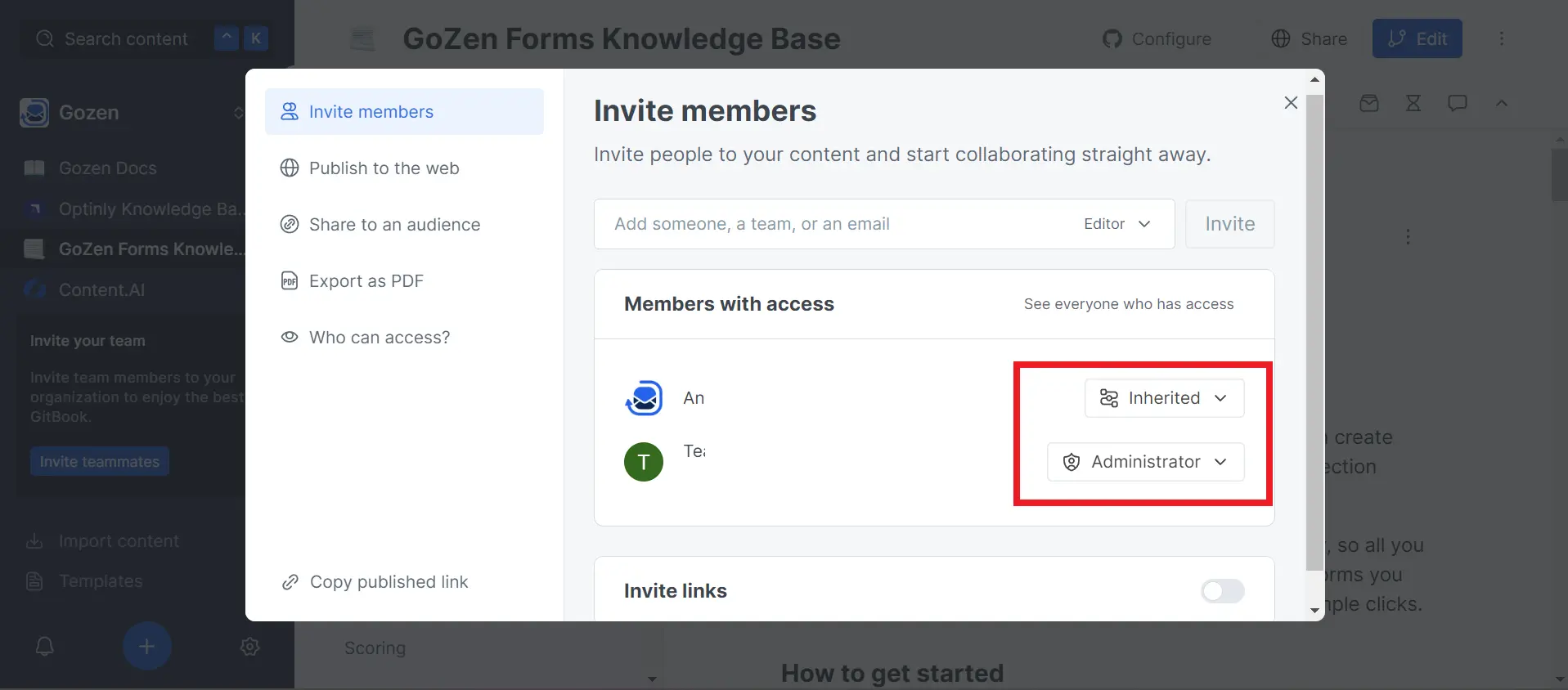
Publish to the Web: If you are looking to rank your knowledge base in Google, this is the option for you. This option allows you to publish your documentation online with a unique configurable URL that is indexed by search engines.
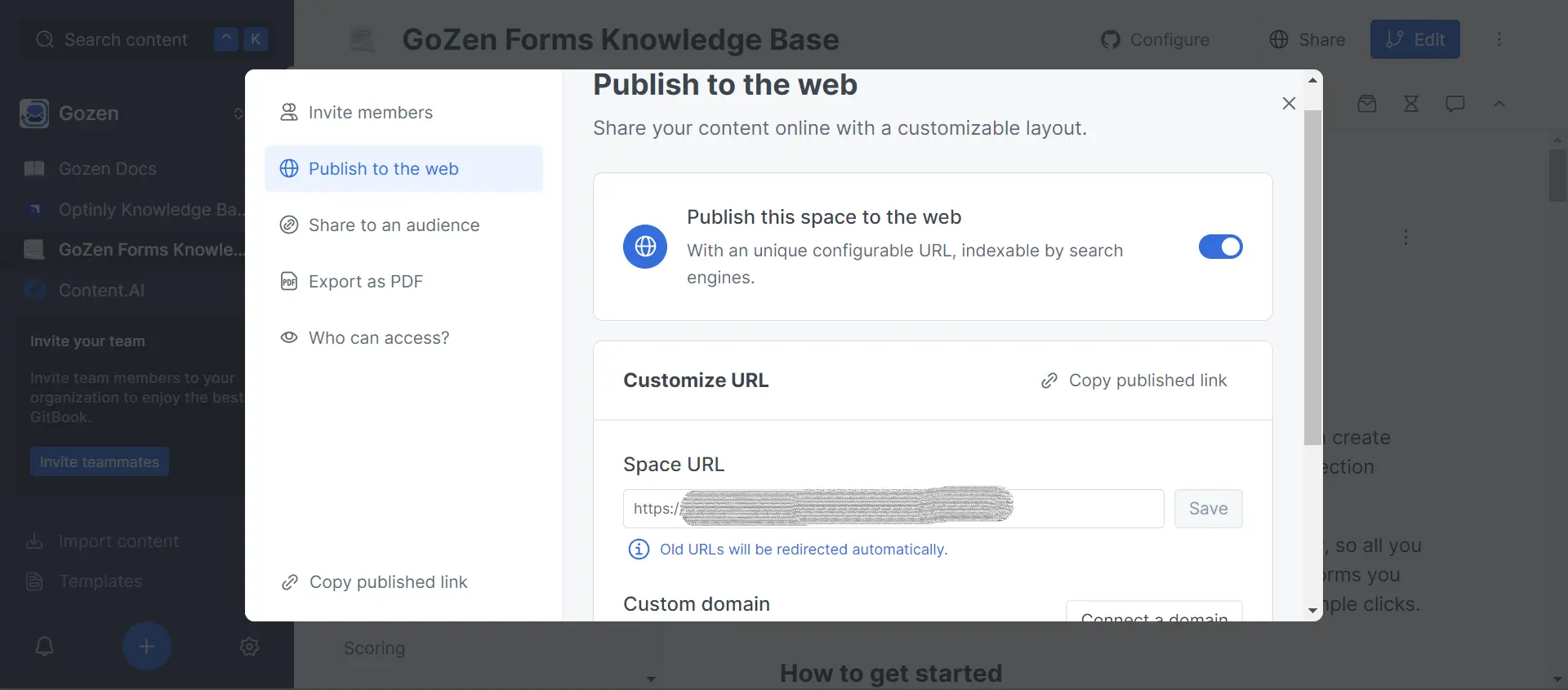
It also allows you to set different colors and sizes for your whole documentation.
Share to an audience: It is more of a controlled way of publishing. This option has three sub-options that includes:
- Publish with visitor authentication: This feature allows you to verify visitors using either your personalized background or integrated authentication methods.
- Publish with share links: Using this feature, you can generate secret public share links, which can be revoked at any time.
- Publish as unlisted: If you publish your space as unlisted, anyone with the link can access your documentation on the Internet. Unlisted spaces are useful for sharing beta versions or conducting extensive user testing without affecting your website’s search engine ranking due to possible duplicate content.
Out of these three, the first two options, the Publish with visitor authentication and Publish with share links are accessible only for paid users of GitBook.
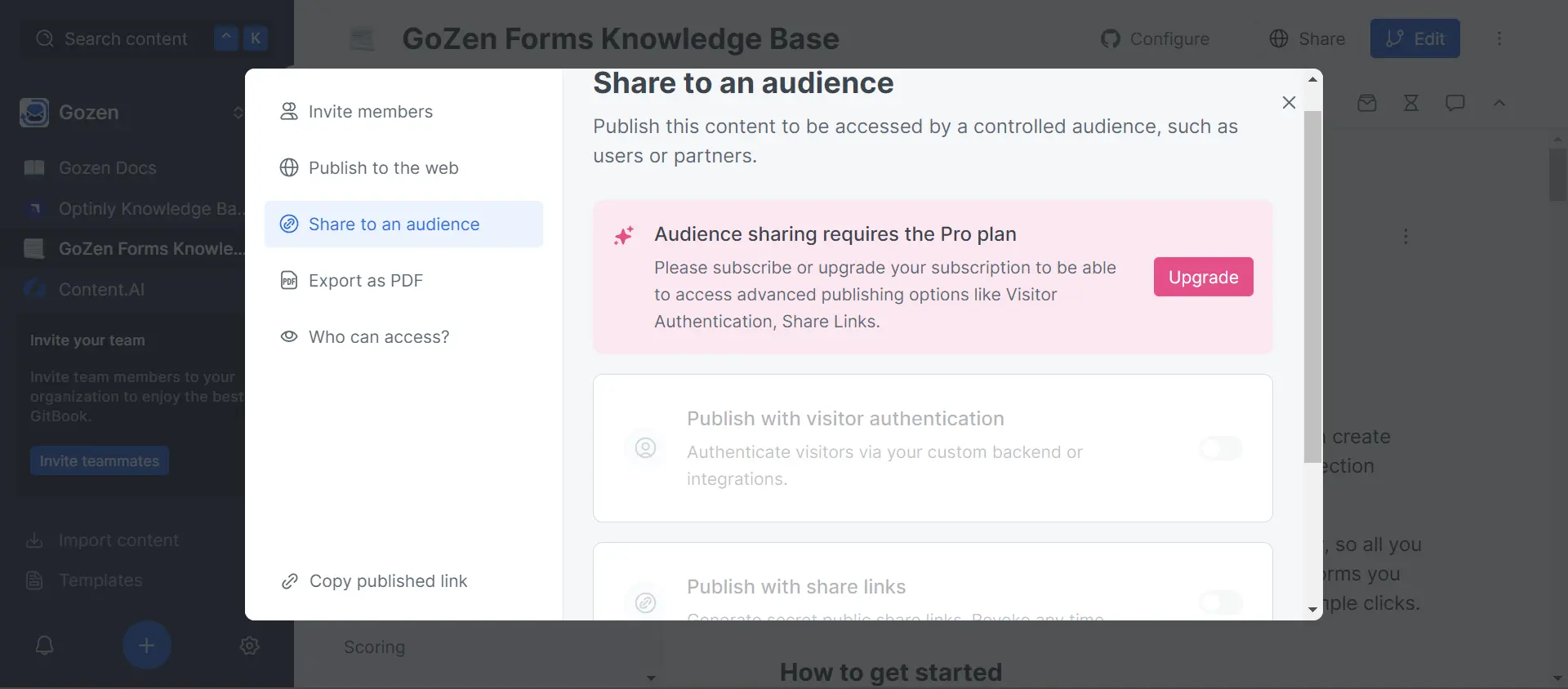
Export as PDF: In case you want to share your documentation/ knowledge base offline, you can download your entire space (aka documentation or knowledge base) as PDF. Again, this option is for pro users of GitBook.
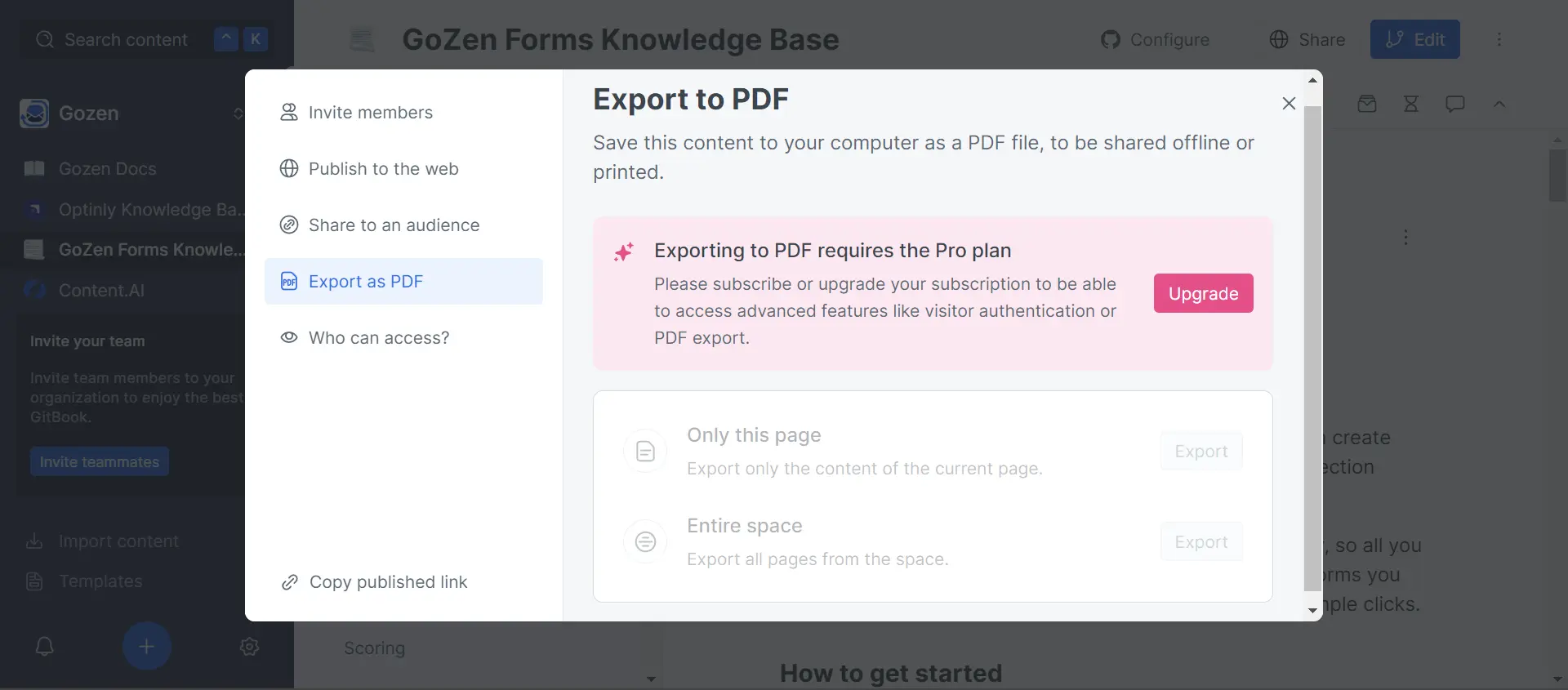
Who can access it? It acts like a dashboard that lets you see your current access to your space/ knowledge base/ documentation.
TL;DR
The majority of SEO optimization is handled by GitBook, requiring minimal manual intervention, typically only in the case of significant human errors.
For scenarios such as having a beta version of your knowledge base or conducting user testing, consider using the “Publish as unlisted” option, which remains non-indexable by Google.
Once your documentation is finalized, proceed to click “Publish to the Web.” This action automatically generates your sitemap, contributing to improving Google ranking.
FAQs
- Is GitBook Free?
GitBook offers both free and paid plans. It is free for individuals who are working on their personal projects.
Teams who want to collaborate and document publicly, must opt for Plus, Pro, or Enterprise plans.
- Does Google rank my website or knowledge base without a sitemap?
Google can rank your website or knowledge base without a sitemap, but having one can aid in efficient indexing and better representation in search results.

